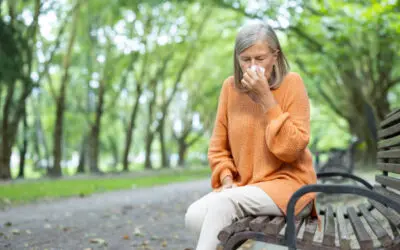Our Blogs
Our Blogs
How to Prepare a Home for Aging in Place: A Room-by-Room Guide
As people grow older, the desire to remain in their own homes becomes increasingly important. Aging in place—staying in one’s home safely and independently as long as possible—requires thoughtful planning and specific modifications tailored to the evolving needs of older adults. A well-prepared home promotes autonomy, prevents injuries, and provides peace of mind for both the aging individual and their loved ones. This guide offers a comprehensive room-by-room overview to help future-proof your home for the years ahead.
How Community Living Promotes Long-Term Health and Wellness
As people grow older, the health and well-being of seniors are becoming increasingly important. Many seniors have concerns before moving into a senior living community. They think that moving to a senior living community may lead to a loss of independence; they might...
Life In The Golden Years: How Routine And Flexibility Improve Senior Well-Being
Aging brings a shift in priorities, pace, and perspective. For many older adults, the question is no longer about doing more, but about living better. Two approaches often shape this stage of life: maintaining a steady routine and allowing room for flexibility. Rather than competing ideas, routine and flexibility work best when they complement each other. Together, they support physical health, emotional stability, and a sense of purpose while preserving independence and joy.
Seasonal Allergies in Older Adults: Symptoms That Look Different With Age
Seasonal allergies are commonly associated with sneezing, itchy eyes, and runny noses. While these symptoms are familiar to many, they often present differently in older adults. Aging brings changes to the immune system, respiratory function, and overall health that can alter how allergies appear and how severely they are felt. As a result, seasonal allergies in seniors are frequently overlooked or mistaken for other conditions, delaying appropriate treatment and relief.
Helping Seniors Rebuild Strength After Winter
Winter often brings reduced activity, limited mobility, and longer periods indoors for many older adults. As spring arrives, it presents a valuable opportunity for seniors to reset their routines, restore strength, and regain confidence in daily movement. A thoughtful spring health reset focuses on gradual physical reconditioning, safe mobility, and renewed engagement with healthy habits after months of seasonal slowdown.
Travel Tips for Seniors: Safety, Comfort & Accessibility
Travel remains one of life’s most enriching experiences, regardless of age. For seniors, exploring new places can offer renewed purpose, social connection, and mental stimulation. With thoughtful planning and realistic expectations, travel in later life can be both safe and deeply enjoyable. The key lies in prioritizing safety, comfort, and accessibility without sacrificing curiosity or independence.
The Journey To Healthy Aging: Tips For Lifelong Wellness
At Eden Vista Green Bay, we recognize that for adults aged 55+, it’s essential to focus on measures that support healthy aging. They need to understand that healthy aging is a journey, not a destination. They should also look beyond traditional definitions of what...
Crafts for All Ages: Projects That Connect Grandparents and Grandkids
In an age dominated by screens and schedules, hands-on activities offer a refreshing way for families to reconnect. Crafting is one of the most enriching shared experiences, especially between grandparents and grandchildren. Beyond the glue sticks, yarn, and construction paper, these creative projects spark joy, storytelling, and lasting memories.
How Senior Living Communities Encourage An Active Lifestyle
At Eden Vista Green Bay, we understand how important it is for seniors to stay active as they enter their later years. Staying active supports not only physical health but also emotional, social, and cognitive well-being. Our premier senior living community takes a...









